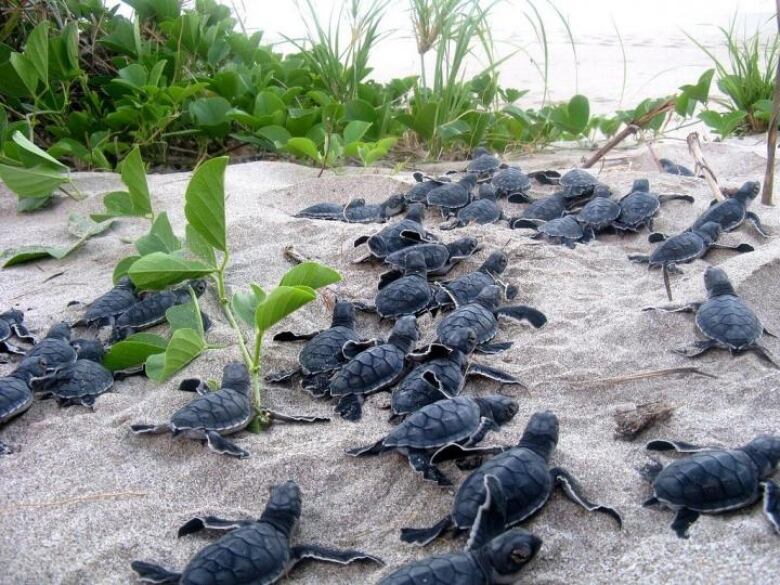Decoy sea turtle eggs with GPS crack illegal egg trafficking
Researchers track the illegal trade to save the valuable eggs of endangered turtles


Amateur detective work by a conservation biologist studying sea turtles in central America may help foil the illegal trade in turtle eggs. Helen Pheasey from the University of Kent in England was part of a team that cracked the case using GPS enabled decoy eggs,
Sea turtle eggs are taken and sold door to door in local villages in many parts of central America. The trade is not lucrative as the eggs only fetch a couple of dollars each when sold, but it's a significant threat to endangered species like the Olive Ridley turtle and the green sea turtle.

The conservation organization Paso Pacifico, developed trackable egg decoys. They were 3D printed with a GPS device inside. Pheasey and her team deployed the eggs — dubbed InvestEGGator — in turtle nests in Costa Rica where they sat among real eggs. Turtles can lay more than 100 eggs at a time.
The decoys are convincing duplicates of the real thing. They are about the size of a ping pong ball, they have a rubbery, squishy exterior, and even include the distinctive dimple that characterizes real turtle eggs.

Egg thieves took 25 of the just over 100 decoy eggs the team deployed. They were then able to track the decoy eggs using a cell-phone app and satellite mapping. Most eggs were traded locally, but one was tracked a total of 137 kilometres inland.
As this was a demonstration project, the team didn't contact authorities. But beyond legal enforcement Pheasey hopes that the knowledge that these decoy eggs are being deployed might serve as a deterrent to the illegal trade.
